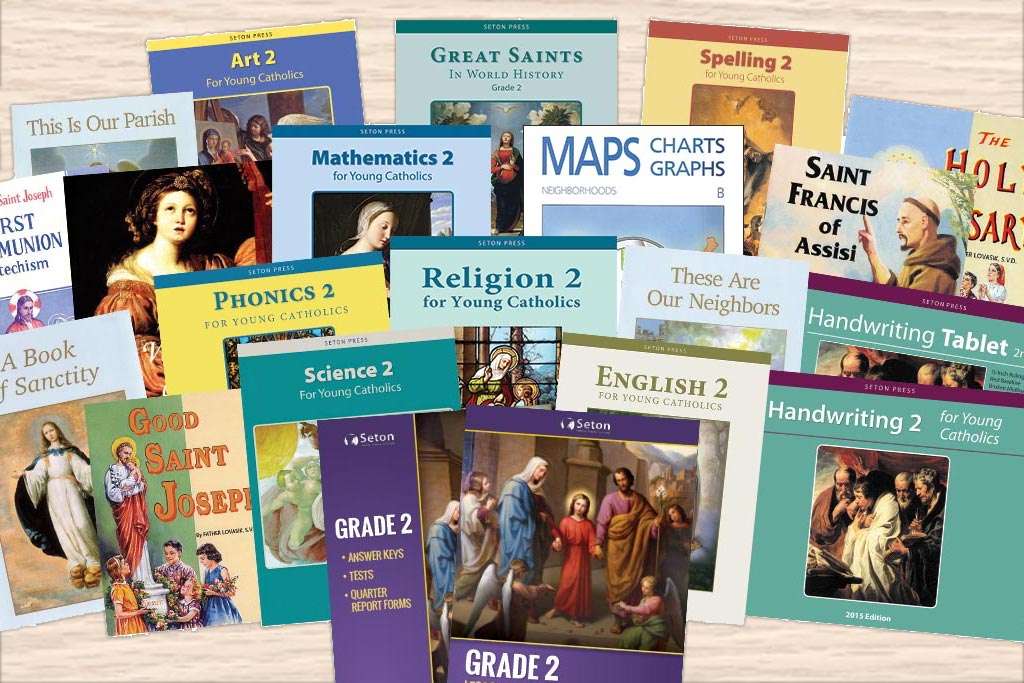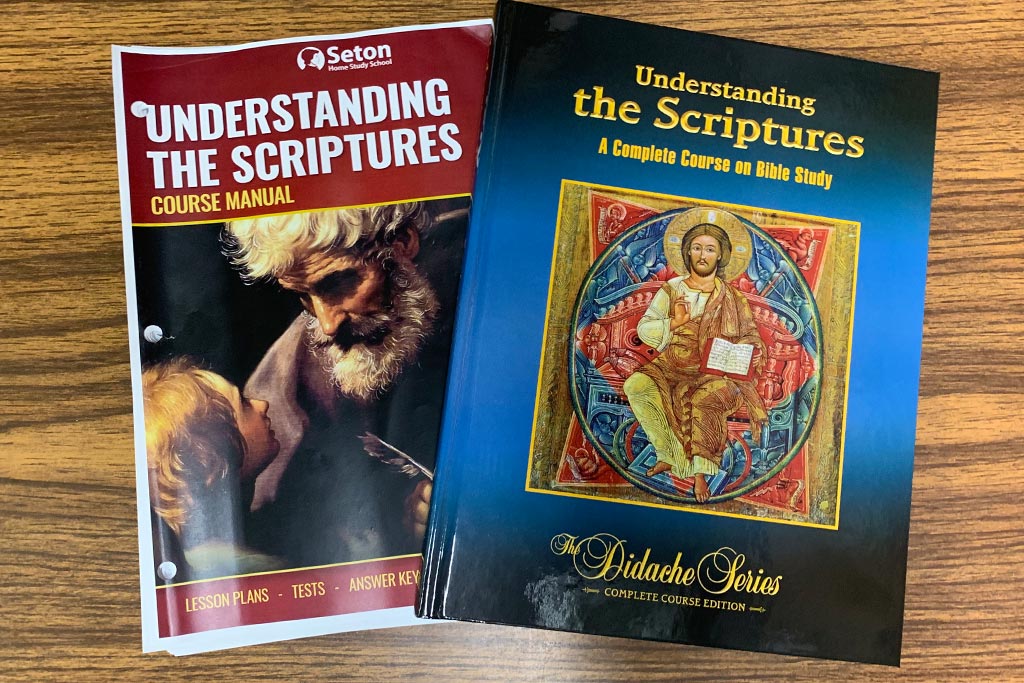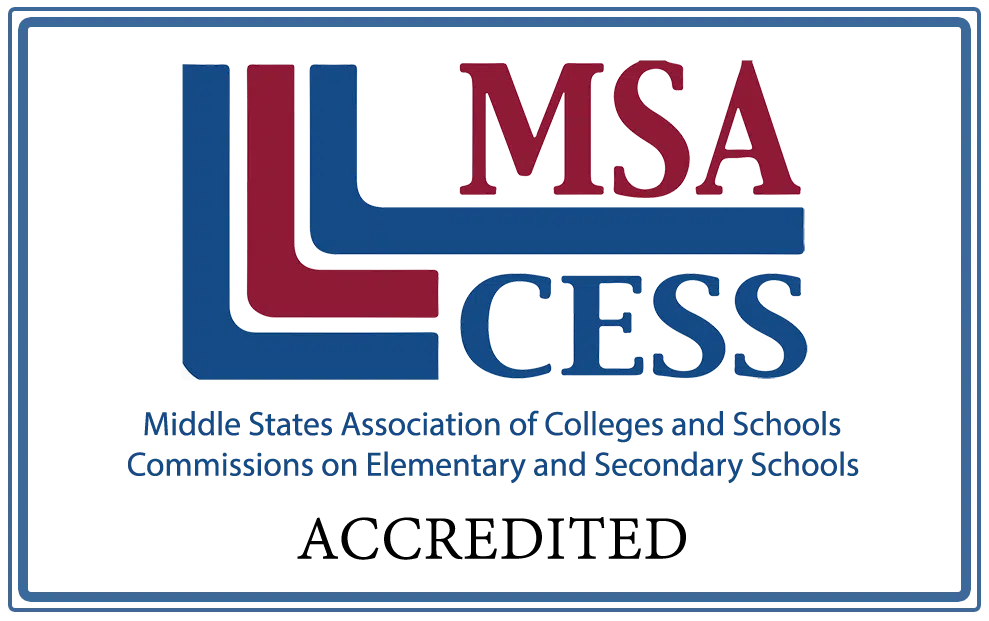
Catholic Homeschool Curriculum
Seton’s English Program
Seton is renowned for its superior English curriculum. Proper grammar and usage are taught as the foundation of all sentence writing, in which sentence diagramming, a practice sadly abandoned by many schools, is utilized to help students visualize logical structure. Composition is the other major focus in English, incrementally building skills from excellent sentence writing, to paragraph writing, and eventually in 8th Grade to research report writing.
As with all of Seton’s subjects, our English curriculum is enriched with beautiful Catholic art, and much of the content is taken from the great stories of Catholic culture, especially the heroic lives of the Saints.
English 2
Second graders build on the previous year’s first formal exposure to this subject. Students learn homonyms and review sentences, antonyms, synonyms, and contractions. Library skills are introduced. Students review nouns, verbs, pronouns, and adjectives, and learn a new part of speech: adverbs.
By the end of second grade, students are diagramming simple two- and three-word sentences. Writing exercises focus on story writing, book reviews, and friendly letters in English 2 for Young Catholics.
English 3
In English 3 for Young Catholics, children learn paragraph writing, review nouns, pronouns, adjectives, verbs, and adverbs. Students study parts of speech and other grammatical concepts in greater depth while learning about St. Josaphat, whose fascinating story runs throughout the exercises.
Topics that are introduced include principal parts of the verb as well as compound subjects and predicates. Students practice punctuation, capitalization, and diagramming.
English 4
English 4 for Young Catholics provides students with practice in word study, sentence types, parts of speech, diagramming, punctuation, and capitalization.
Letter writing and dictionary/library skills are also studied. The student’s skills in paragraph composition are developed and put into practice in writing assignments. While studying grammar, students learn about the lives of many of the English martyrs.
English 5
English 5 for Young Catholics challenges the student’s knowledge of parts of speech, types of sentences, punctuation, and sentence diagramming.
Practice in written expression centers on paragraph writing. Students are introduced to the study of poetry. Catholic values are present throughout the book in exercises and in topics for writing assignments.
English 6
In English 6 for Young Catholics independent clauses and compound sentences are introduced. Sixth graders improve their skills in punctuation, parts of speech, elements of a good paragraph, and sentence diagramming.
Students then display these skills in letters, speeches, dramatizations, and paragraphs. In paragraphs about Scripture passages, students move beyond summarizing the material, and use examples to support their own conclusions about what they have read.
English 7
Students study outlining in depth and learn principles that will enable them to outline compositions of any length as they read and write.
Using the English 7 for Young Catholics text-workbook, students build on their previous knowledge of punctuation, the eight parts of speech, phrases, clauses, and sentences. Students are introduced to relative pronouns, adverbial objectives, complex sentences, and learn to diagram sentences containing adjectival and adverbial subordinate clauses.
English 8
Using the English 8 for Young Catholics workbook in the first semester, students do a fast-paced review of grammar concepts learned in previous years. Topics reviewed include the eight parts of speech, adjectival and adverbial prepositional phrases, principal clauses, adjectival and adverbial subordinate clauses, and diagramming. Noun clauses are introduced this year.
Composition for Young Catholics is the second semester component of the English course. Students focus on expository writing using examples, details, and reasons to support ideas. In the final quarter, students go through the steps of writing a practice research report, which include taking notes, constructing a bibliography, and citing sources. These skills will be especially valuable in the high school years.

Full Enrollment
Learn More

Single Course Enrollment
Learn More

Book Sales
Learn More
The Value of Your Enrollment
Your enrollment provides you with much more than just a box of books. It provides an accredited education, a strong support system, and a community of staff and homeschoolers who are in your corner. It provides access to academic and support counseling, grading and record keeping, and a solid Catholic curriculum that promotes strong Catholic values in each and every subject.
Catholic Materials
All of our books and materials are thoroughly Catholic, from beginning to end.








